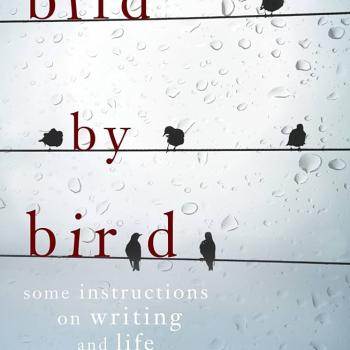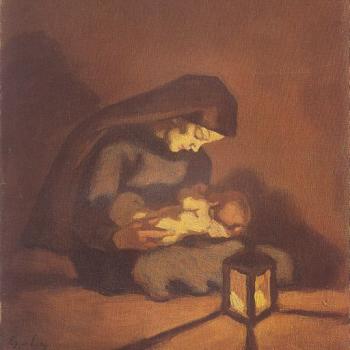Muslim Reflection -- By Homayra Ziad
As a woman reflecting on the biblical and Qur'anic stories of Joseph/Yusuf, I find myself returning time and again to the maddening figure of Zuleikha, the wife of al-Aziz. While Zuleikha disappears post-seduction in the biblical text, she makes two more appearances in the Qur'anic text, the last of which is a declaration of repentance. What is the significance of Zuleikha's return in the Qur'an?
In the Qur'an, as in the Bible, Zuleikha first appears as a dyed-in-the-wool seductress. When she is rejected by the Prophet Yusuf and her actions are exposed to her husband, she becomes bitter and vengeful. She hurries to justify her trespass to the town gossips by parading Yusuf in their presence; they cut their fingers in disbelief at his beauty. She further persists in her transgression, threatening Yusuf with imprisonment and humiliation if he does not succumb. In the end, she drives him, a pure and good soul, to seek prison as his only refuge. At every step of the way, Zuleikha embodies the worst in human nature.
Yet, of all the figures in the sura of Yusuf Joseph story, Zuleikha is the most real. Yes, the Prophet Yusuf was severely tested, but at each breaking point, he was delivered to a greater glory by a sudden turn of events largely beyond his control. But there is no deus ex machina for Zuleikha; she must struggle to find herself on her own. Locked in vicious struggle with Yusuf, she is a symbol of the troubled soul crying for prophetic guidance, but scared to death of where it may take her. Zuleikha is the self, sensing its way to actualization. She models what we all go through, the mistakes we make, our pettiness and bad humor, the hurt we inflict on those we love, how we take our own pain out on those around us. Zuleikha is a flesh-and-blood human being. She is our shadow, and as such, we must claim her and love her.
In the moment of repentance, however, Zuleikha seems to be suddenly, utterly changed. She becomes a cardboard cutout, mouthing truisms. Must Zuleikha lose what makes her human in order to fully repent? But if we step back a little, we see that she does not lose herself; it is the goal itself that has changed, for the path of actualization is no less than the sublimation of self. Is it so bad to be a mouthpiece for the Truth? From this vantage point, Zuleikha has become the soul at peace in God. She has lost her "I" and instead speaks with the tongue of Truth.
Perhaps that is the greatest significance of Zuleikha's return in the Qur'an: it completes her story, from transgression and bitterness to repentance and the painful re-turning of the self to God. Her return makes her a symbol of wholeness. Just as Zuleikha was our shadow, the unsettling depths of our nature, so she also represents our greatest hope.
Jewish reflection -- By Rachel Barenblat
In studying the Joseph/Yusuf story as it appears in the Qur'an, the Torah, midrash, and tafsir, one of the biggest revelations for me is how differently our two traditions speak of Zuleikha. Our texts agree that Joseph rises to prominence in the house of one of Pharaoh's viziers and that the vizier's wife makes a pass at Joseph, which Joseph refuses. But there the stories diverge.
Jews read the Joseph story as a parable about descent for the sake of ascent. Joseph descends into Egypt in order to rise in Potiphar's (the Qur'anic "al-Aziz") house, and descends into jail in order to rise as a servant to Pharaoh (and in order to waken to God's providence in his life.) Thus his family and community descend into Egypt and are saved from famine, in order that when "a Pharaoh arises who knew not Joseph," and the people are enslaved, God can liberate the Jewish community with a mighty hand and an outstretched arm. This liberation is the central narrative of Jewish peoplehood: it leads us to Sinai and to the revelation of Torah, our covenant with God.
Zuleikha has only a minor role to play in this story. She exists in the narrative primarily to give Potiphar a pretext for jailing Joseph; after that, she disappears from the Torah text. When she appears in midrash (classical exegetical stories), she is often depicted through an uncharitable lens.
One midrash declares that Zuleikha speaks "like an animal" when she commands Joseph to "lie with me." Reading that text, I see the early roots of the western literary trope of the sexually ravenous "Other," the foreign woman whose wiles put the hero's virtue at risk. Another midrash shows Joseph "unmanned" -- the spirit may be willing, but in the critical moment he finds his body incapable of committing sin, thanks to God's grace. It seems to me that both of these texts show Zuleikha in a negative light.
But classical midrash was written by men, who have their own fears and agendas. Over the last few decades, however, a tradition of contemporary feminist midrash has arisen in Judaism. Jewish women have written stories and poems that give voice to Eve and Lilith, Sarah and Hagar, Rebecca and Rachel and Leah. I look forward to the day when Jewish women reclaim Zuleikha, too.




